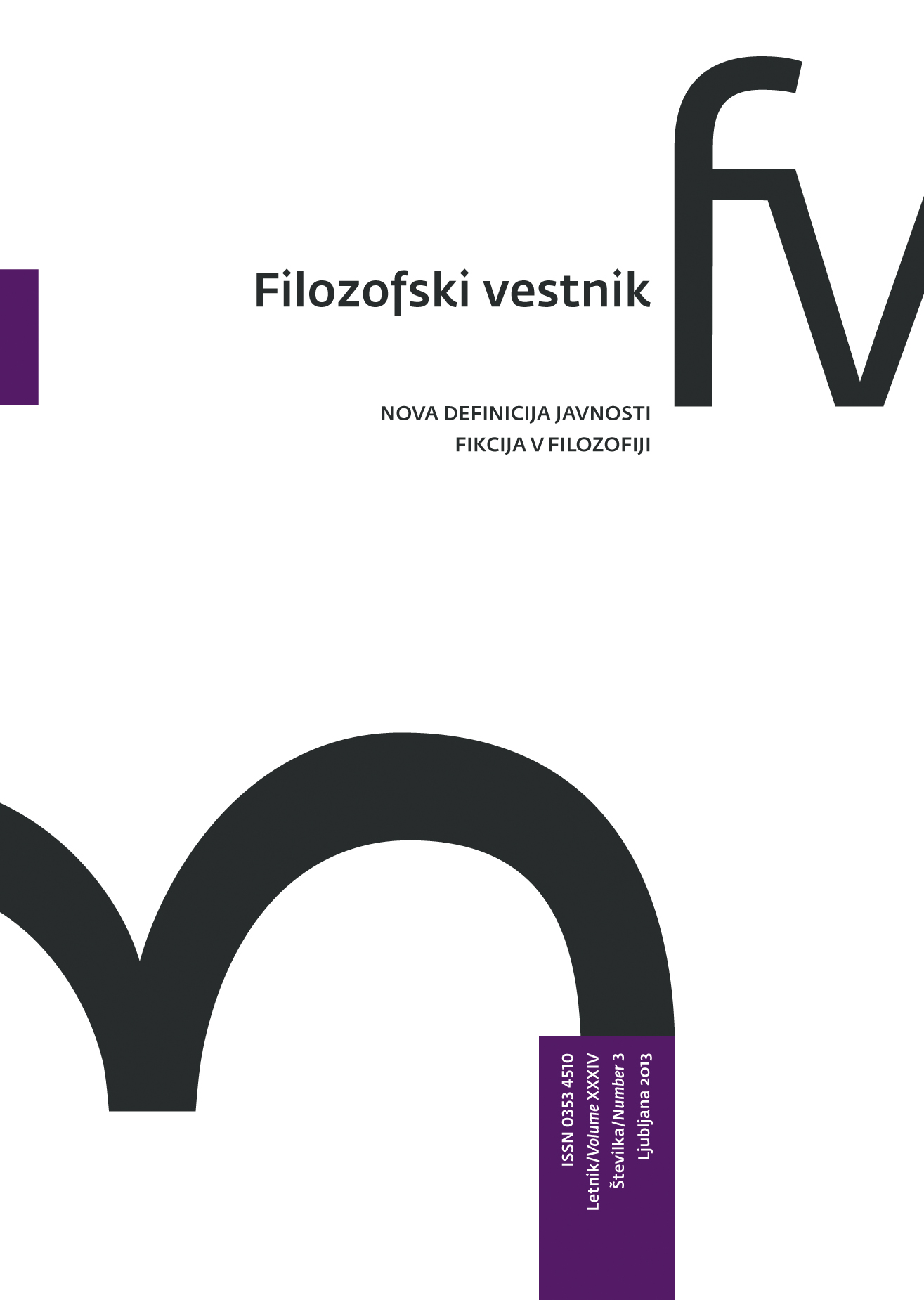Logike Proustovih svetov
Ključne besede:
Marcel Proust, Alain Badiou, literatura, filozofija, svet, mnoštvo, resnicaPovzetek
Prispevek ponuja medsebojno povezani branji Iskanja izgubljenega časa Marcela Prousta in Logik svetov Alaina Badiouja v luči problematike mnoštva svetov, ki zadeva tako literaturo kot filozofijo. Pri Proustu se ta problem kaže kot problem začetka pisanja romana, iskanja primerne strukture, ki bo povezala avtorjevo/pripovedovalčevo življenjsko izkustvo s konstrukcijo in povezavo množice svetov (po Gillesu Deleuzu gre za svetove visoke družbe, ljubezni, čutnih vtisov in umetnosti) v svetu romana. Iz vidika Badioujevega filozofskega sistema pa Proust zapolnjuje manjkajoče strukturno mesto: če Badioujeve teze o biti vključujejo obravnavo (Mallarméjeve) poezije, bi morale njegove teze o pojavnosti vključevati obravnavo (Proustove) proze. Proustovi svetovi visoke družbe, ljubezni in čutnih vtisov so predstavljeni kot ponazoritev treh ključnih elementov Badioujeve logike pojavnosti: transcendentalnega, objekta in relacije, Proustov zadnji svet, svet umetnosti (ali natančneje, svet romana samega) pa je predstavljen kot svet, kot ga oblikuje postopek resnice, ki ga sproži dogodek.Prenosi
Podatki o prenosih še niso na voljo.
Prenosi
Objavljeno
2016-02-07
Kako citirati
Benčin, R. (2016). Logike Proustovih svetov. Filozofski Vestnik, 34(3). Pridobljeno od https://ojs.zrc-sazu.si/filozofski-vestnik/article/view/4227
Številka
Rubrike
Fikcija v filozofiji
Licenca
Avtorji jamčijo, da je delo njihova avtorska stvaritev, da v njem niso kršene avtorske pravice tretjih oseb ali kake druge pravice. V primeru zahtevkov tretjih oseb se avtorji zavezujejo, da bodo varovali interese založnika ter da bodo povrnili morebitno škodo.
Podrobneje v rubriki: Prispevki





